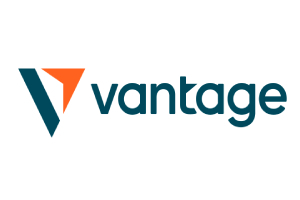If you are a crypto enthusiast, you have probably heard about the ongoing legal battle between Ripple and the US Securities and Exchange Commission (SEC). The case has been making headlines for months, and it could have a significant impact on the future of the crypto industry.
But what is the case really about? And what does it mean for you as an investor? Here is a brief overview of the main points and implications of the Ripple v. SEC case.
The Basics: What Is Ripple (XRP)?

Ripple is a company that aims to create a global payment network using blockchain technology. It has developed a protocol called XRP Ledger, which allows fast and cheap cross-border transactions using its native token, XRP.
XRP is one of the most popular cryptocurrencies in the world, with a market capitalization of about $40 billion as of July 2023. It is used by various banks, financial institutions, and remittance services to facilitate international payments.
What Is the Sec’s Lawsuit Against Ripple?
In December 2020, the SEC filed a lawsuit against Ripple and its executives, alleging that they had raised over $1.3 billion through an unregistered and ongoing sale of XRP tokens, which the SEC considers to be securities.
Securities are financial instruments that represent ownership or debt in a company or project. They are subject to strict regulations and disclosure requirements by the SEC, which aims to protect investors from fraud and manipulation.
The SEC claims that Ripple violated these rules by selling XRP to institutional investors without registering it as a security and by misleading the public about the nature and status of XRP.
Ripple’s Defense?
Ripple denies that XRP is a security and argues that it is a digital asset that functions as a medium of exchange and a store of value. It also contends that XRP is decentralized and independent from Ripple and that it has utility and value beyond its relationship with Ripple.
Ripple also asserts that the SEC’s lawsuit is unfair and harmful to the crypto industry, as it creates uncertainty and confusion for millions of investors, developers, and users who rely on XRP and other cryptocurrencies.
The Latest Development in the Case
On July 13, 2023, a US district judge issued a partial summary judgment in favor of Ripple, ruling that XRP is not a security when traded on crypto exchanges. This means that Ripple did not violate any securities laws by selling XRP to retail investors on platforms like Coinbase or Binance.
However, the judge also ruled that XRP is a security when sold to institutional investors at launch. This means that Ripple may still be liable for selling unregistered securities to large buyers who participated in its initial coin offering (ICO) or private placements.
The ruling is not final, as both parties can appeal it. The case is still ongoing, and there are many unresolved issues and questions that need to be addressed.
What Are the Implications of the Case for Crypto Investors?
The Ripple vs. SEC case is one of the most important and complex legal disputes in the crypto space. It has far-reaching implications for the future of regulation, innovation, and the adoption of cryptocurrencies.
On one hand, the case could provide some clarity and guidance on how to classify and regulate different types of crypto assets, which could benefit the entire industry and foster more confidence and trust among investors.
On the other hand, the case could also create more uncertainty and risk for crypto companies and projects, especially those that have issued or plan to issue their own tokens. They could face more scrutiny and enforcement actions from the SEC or other regulators, which could hamper their growth and innovation.
As an investor, you should be aware of these potential outcomes and do your own research before investing in any crypto asset. You do not want to invest based on FOMO but on substance and solid projections. You should also diversify your portfolio and think long-term rather than following the hype or trend.
The Ripple vs. SEC case is not over yet. But whatever happens next, it will surely have “ripple” effects for years to come.
You can purchase Lucky Block – Guide, Tips & Insights | Learn 2 Trade here. Buy LBLOCK
- Broker
- Min Deposit
- Score
- Visit Broker
- Award-winning Cryptocurrency trading platform
- $100 minimum deposit,
- FCA & Cysec regulated
- 20% welcome bonus of upto $10,000
- Minimum deposit $100
- Verify your account before the bonus is credited
- Fund Moneta Markets account with a minimum of $250
- Opt in using the form to claim your 50% deposit bonus
Learn to Trade
Never Miss A Trade Again

Signal Notification
Real-time signal notifications whenever a signal is opened, closes or Updated

Get Alerts
Immediate alerts to your email and mobile phone.

Entry Price Levels
Entry price level for every signal Just choose one of our Top Brokers in the list above to get all this free.



